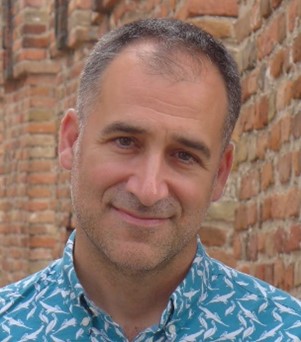A Closer Look: Interdisciplinary Approaches to Byzantine and Medieval Cyprus
Presented By
The Gennadius Library, ASCSA
Speaker(s)
Nikolas Bakirtzis, Associate Professor, The Cyprus Institute
Location
ASCSA, Cotsen Hall, 9 Anapiron Polemou, 106 76 AthensAbout the lecture
 The use of advanced scientific and technological methods has offered new perspectives in the study of the art and architecture of Byzantine and Medieval Cyprus. Analytical tools, digital imaging and scientific visualization can help shed light on the layered histories of paintings and buildings by unveiling unknown details and secrets.
The use of advanced scientific and technological methods has offered new perspectives in the study of the art and architecture of Byzantine and Medieval Cyprus. Analytical tools, digital imaging and scientific visualization can help shed light on the layered histories of paintings and buildings by unveiling unknown details and secrets.
This presentation will draw from research pursued at the Cyprus Institute’s “Andreas Pittas Art Characterization Laboratories” (https://apac.cyi.ac.cy), where an interdisciplinary team of experts develops and applies a wide range of scientific and technological methods to document, study and visualize the material remains, the art and the architecture of Byzantine and Medieval Cyprus.
Selected examples from the UNESCO-listed Painted Churches of the Troodos Mountains, the Early Christian architecture of Salamis and Kourion, the medieval monasteries of the mountains of Kerynia and the fortifications of Nicosia and Famagusta, will provide instructive highlights of the ways advanced science and technology have offered a closer look to the Byzantine and Medieval heritage of Cyprus.
About the speaker

Nikolas Bakirtzis is Associate Professor at the Cyprus Institute pursuing his research at the Science and Technology in Archaeology and Culture Research Center (STARC). He received his PhD in Byzantine and Medieval Art and Archaeology from Princeton University. He also held postdoctoral and visiting faculty positions at Columbia University in New York, Koc University in Turkey and at the University of Minnesota in Minneapolis.
His research and publications focus on interdisciplinary approaches to byzantine monasticism, medieval cities and fortifications, and, the island landscapes of the Byzantine, Medieval and Early Modern Mediterranean. More recently his work explores issues of heritage and cultural identity in historic cities. As the Director of the Andreas Pittas Art Characterization Labs (APAC Labs) he is pursuing research on the materiality and the provenance of works of art enhanced through the use of advanced digital and analytical methods.
His awards and fellowships include support from the European Commission, the Cyprus Research and Innovation Foundation, the Princeton Seeger Center for Hellenic Studies, the A.G. Leventis Foundation, Dumbarton Oaks, the Getty Research Institute and the University of Tübingen.